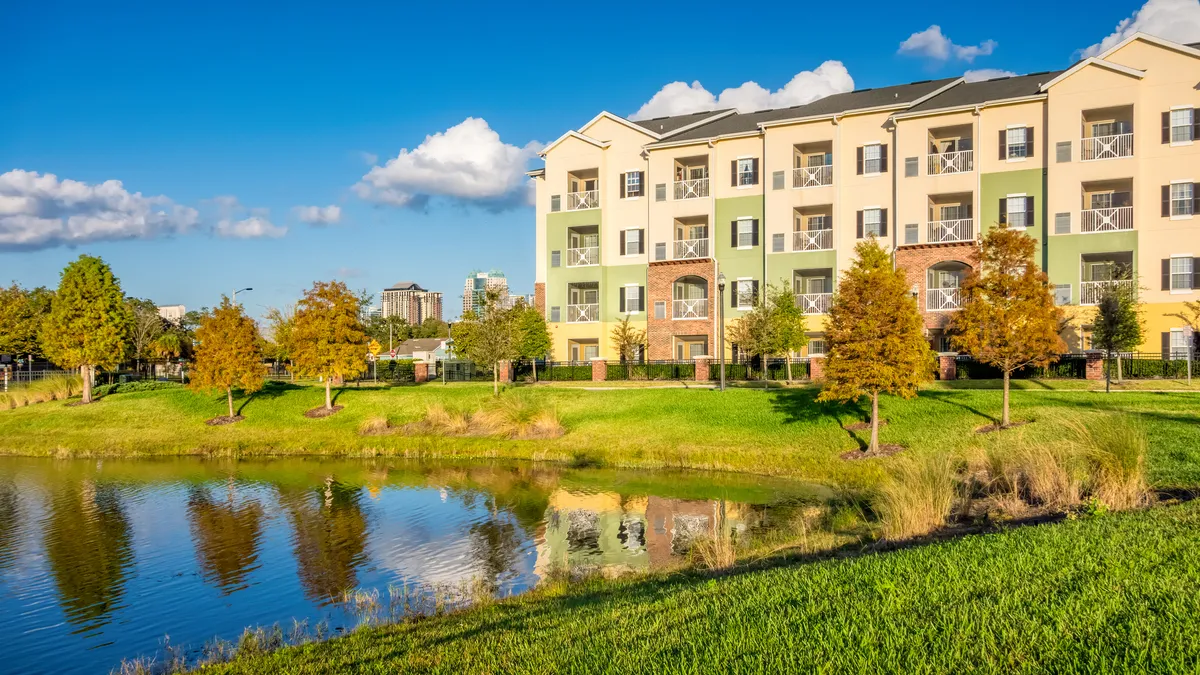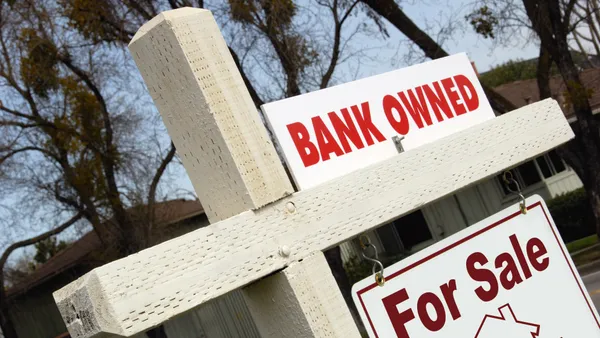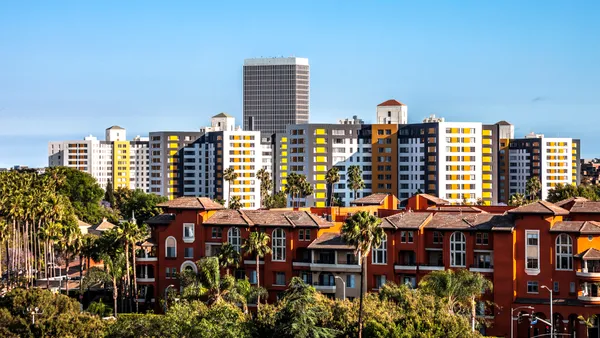Dive Brief:
- For the first time since June 2020, the national average multifamily rent fell in August, down $1 to $1,718, according to Yardi Matrix’s latest National Multifamily Report.
- While year-over-year rent growth remained high at 10.9%, it has fallen 170 basis points from the previous month, continuing a long trend of YOY rent growth deceleration this year.
- Yardi attributes this month’s moderation to the effects of higher interest rates on the economy, a lack of affordability and a slowdown in migration, alongside the typical seasonal cooldown in rents. The data and analytics firm anticipates ongoing deceleration in rents through the end of 2022.
Dive Insight:
While a cooler market could drive demand for housing, residents’ wallets are also strained by inflation and a slowing job market, affecting their ability to pay. However, year-to-date rent growth remains high at 6.6%, second only to 2021, and occupancy has held above 96% for the last 14 months.
Markets that grew rapidly over the past two years are seeing some of the strongest deceleration at the metro level, especially as affordability concerns arise. YOY rent growth has fallen between 700 and 800 basis points over the past two months in three Florida markets that have consistently topped the rent growth list over the past year — Orlando (16.9% rent growth in August), Miami (16.7%) and Tampa (14.0%).
| Market | YOY Rent Growth, August 2022 | YOY Rent Growth, July 2022 | Difference |
|---|---|---|---|
| Orlando, Florida | 16.9% | 20.2% | -3.3 |
| Miami Metro | 16.7% | 19.5% | -2.8 |
| Nashville, Tennessee | 14.8% | 16.5% | -1.7 |
| Dallas | 14.2% | 16.1% | -1.9 |
| Tampa, Florida | 14.0% | 17.4% | -3.4 |
| Raleigh, North Carolina | 13.5% | 17.5% | -4.0 |
| Orange County, California | 13.5% | 17.6% | -4.1 |
| Charlotte, North Carolina | 12.7% | 15.4% | -2.7 |
| Indianapolis | 12.5% | 13.9% | -1.4 |
| San Jose, California | 11.9% | 13.4% | -1.5 |
SOURCE: Yardi Matrix
Orlando and Miami still top the list of metros with the highest rent growth YOY, while Tampa has fallen into fifth place. The Twin Cities experienced the lowest rent growth out of the 30 major markets at 3.7% — due possibly to the recent passage of rent control in St. Paul, Minnesota, which limits rent increases in the city to 3% over a 12-month period.
Short-term rent changes told a different story. National asking rents fell 0.1% from July to August, and metro-level asking rents rose in only 10 of the top 30 markets. Philadelphia, San Francisco, and Nashville, Tennessee, were tied for the highest August rent growth at 0.5%. Raleigh, North Carolina, experienced the steepest drop at -1.3%











